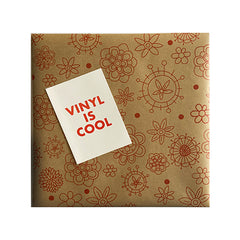









Deepgrooves: A Record Label Deep in the Pacific of Bass, and the People Who Gave It a Voice.
Peter McLennan (Dub Asylum, Hallelujah Picassos) has just unveiled his extraordinary book, telling the tale of 90s Auckland label Deepgrooves. Home to a remarkable spread of acts, from early Aotearoa hip hop to the likes of New Loungehead and Breaks Co-op, the label was a total game changer. - Flying Out
Deepgrooves was a 1990s Auckland-based record label that released the first ever local hip-hop single to reach number one on the NZ charts with 3 The Hard Way’s ‘Hip-hop Holiday’, back when there were local radio stations with slogans like 'No rap, no crap'. At that time, some people in the media and the music industry genuinely believed rap/hip-hop was a fad and it would die out. Especially if they ignored it.
The label created forgotten classic records from Fuemana, Sulata, Grace, Urban Disturbance, Freebass, Breaks Co-op, New Loungehead and Ermehn, plus countless individual moments of funky greatness on the reggae and hip-hop vibe.
It was hugely influential and broke down barriers for those who followed like Fat Freddy’s Drop, Che Fu, Nesian Mystik, Shapeshifter, Ladi6, and many more local dance acts. It proved we could make great dance music right here in Aotearoa New Zealand.
This oral history looks into the many stories of Deepgrooves and the musicians, DJs and producers behind it, how they got started and where they ventured. It’s the tale of the inner city community in Auckland that gave rise to this scene.
Deepgrooves opened the door for a collective of talented young men and women who were largely shut out of the local music industry, and brought to life some incredible music.
“From the outside, watching Deepgrooves grow, and watching what they were doing was really hugely influential on what I was listening to. I connected to the fact that they were releasing music by young Maori and Polynesian acts – that was progressive for its time. The music also felt truly competitive on the global stage” – Kirk Harding.
“It’s easily one of the most important local indie labels of the post-punk era and one that paved the way for so much New Zealand music” – Simon Grigg.
- Related products
- Recently viewed






